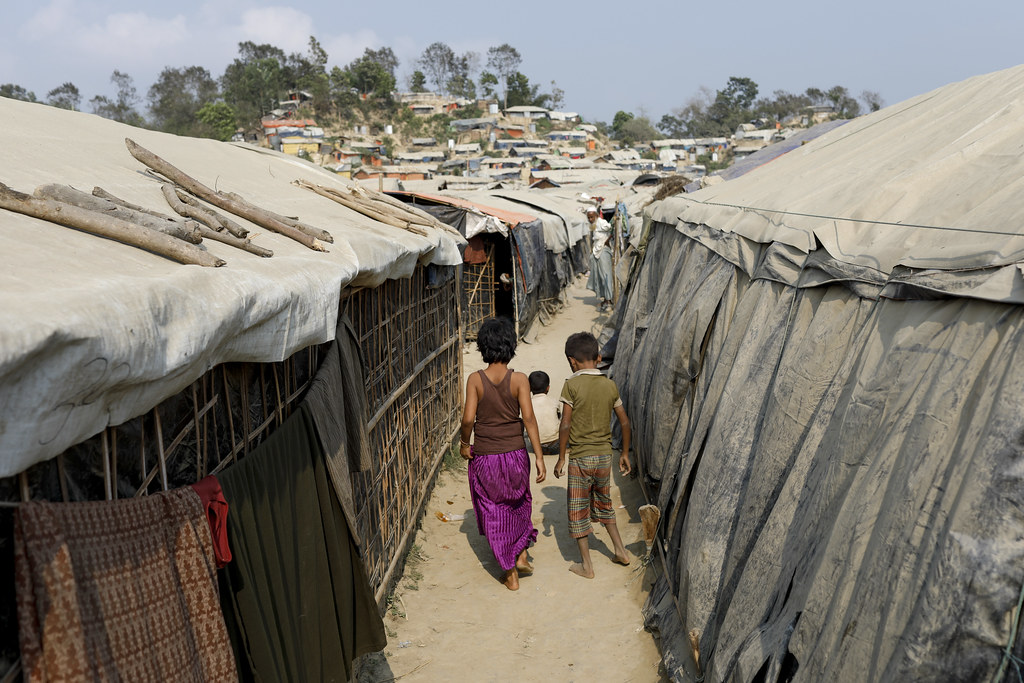As I type this, there is a 14-year-old Rohingya girl sitting alone in a shelter home in the Indian state of Assam, probably scared and confused. She was returned to the home after being accompanied to the Indo-Myanmar border by eight police officers, upon the Indian government’s order to deport her back to Myanmar – a country currently reeling under a military coup. The Myanmar junta has now killed more than 500 civilians. Not to forget, the army generals also deemed it necessary to throw a lavish party commemorating ‘Armed Forces Day’ while people lay dead in the streets.
Thankfully (and most ironically), it was reportedly the Myanmar authorities at the border who refused to let the girl in, citing the inappropriate situation of the country. How baffling though, that instead of granting her request to be reunited with her family (who are refugees in Bangladesh), the Indian government decided this lonely minor deserves to be deported back to Myanmar.
India is not a signatory to the UN Refugee Convention but could still breach the international legal principle of non-refoulement should refugees be deported under such circumstances. So why the urgency to deport? No willingness to share space with – as someone says – “termites”? Or no resources to house an influx of them? It is likely not the latter, because if you have money for statues and other vanity projects, then surely you have money to rehabilitate humans seeking food and shelter?
This isn’t just about India’s stance though. Rather, our collective failure to prevent the oppression and cumulative exodus of Rohingya people over the years. The UN described this as a “textbook example of ethnic cleansing”. Their homes were burnt and relatives massacred before escaping through wetlands and cramping onto boats to reach kinder shores. How much kinder? That’s for you to decide after observing several tragedies befall them time after time – the most recent being the large fire outbreak in Cox’s Bazar.

Since I am writing this in a global health journal, you probably expect me to link these humanitarian tragedies to health. However, my intention is to highlight our failure to call out human rights violations upon the Rohingya people more broadly. Of course, there will be critical repercussions on the health of people who escape gender-based violence, human trafficking and child labour to name a few of the abuses. Of course, they may also suffer from communicable diseases by living in crowded shanties and being exposed to unhygienic water and sanitation facilities.
Many of them may also end up with mental health issues and other non-communicable diseases which are triggered through years of stress, poor diet and harsh lifestyles. Who knows when any of these will be diagnosed, given their lack of access to appropriate medical services. Right now, many of them are living in a ‘quick-fix band-aid world’. Only the most immediate medical concerns can be attended to by health workers situated close to the camps. Just like health consequences, there will also be socioeconomic losses affecting an entire generation’s future.
What I hope for though, is for us to step back and look at the events that led to these disastrous consequences as a community of global health professionals. In other words, why can’t we sink our hands deep into the ugly politics of human rights issues at our very doorstep, before it spills into an irremediable muck?
The intersection between health and human rights is commonly evoked. Yet, it should not be necessary for us to view human rights only through the lens of ‘health needs’ in order to act. It is alright to scoot over to the human rights side to voice our opinion as people with a decent enough intellectual capacity to challenge the perpetrators of discrimination (and oppression) in any form. We know there will be grave health consequences on population X if subjugation is imminent, but while slaughtering and enslavement is rampant, we need to collectively call that out too.
After reading this, would you still think of people like that girl sitting in Assam being tossed between countries? I’ve only seen journalists tweet about that incident recently. Global health professionals are (rightfully) busy with COVID, UHC, SDGs, PHC and other important acronyms. However, what would it look like if we literally spoke up for our Rohingya brothers and sisters on Zoom webinars, op-eds, research studies, or simply amongst our peers? Or what if you reached out to help refugees financially, providing free health care, training, etc. Please let’s do something bigger for persecuted minorities who are on the brink of ethnic cleansing? I will leave you to decide on the actionable steps appropriate for you. Steps that are to simply help alleviate the suffering of a fellow human being.
Important note: There are also ongoing atrocities against several other groups such as Tigrayans in Ethiopia and Uyghurs in Xinjiang, China. And so, I hope from our privileged position, we can voice our support more actively for at least one persecuted minority somewhere in this world.
About the author: Dr. Neha Faruqui is a global health researcher who hopes that whoever reads this blog to the end will do their bit in calling out human rights violations. Twitter: @FaruquiNeha
Conflict of interest: Neha is the co-editor of BMJ Global Health blogs. Hence, this blog was reviewed by journal editor, Seye Abimbola.